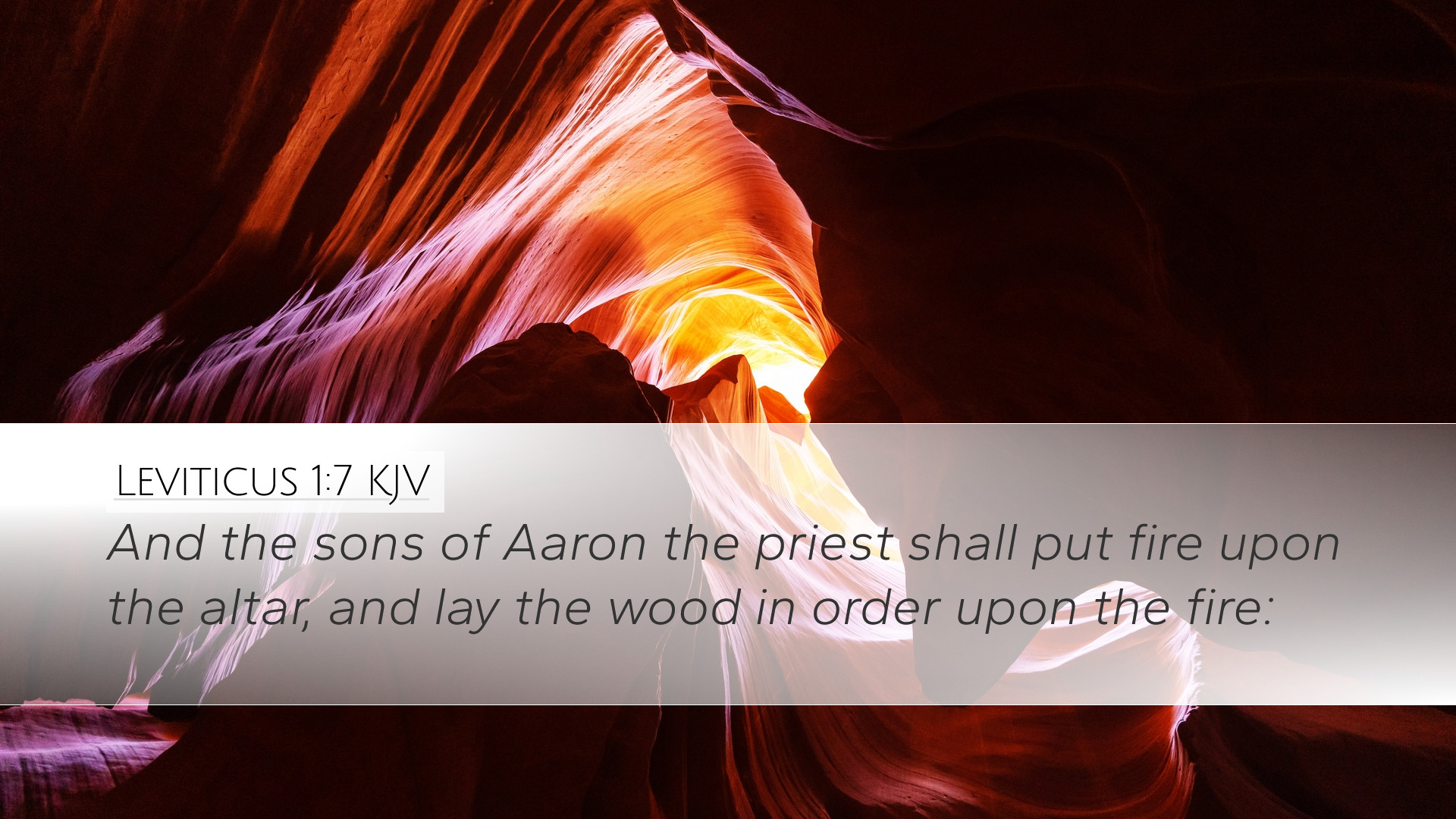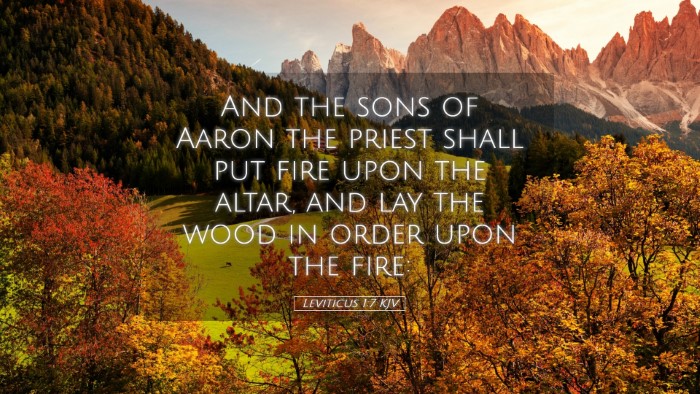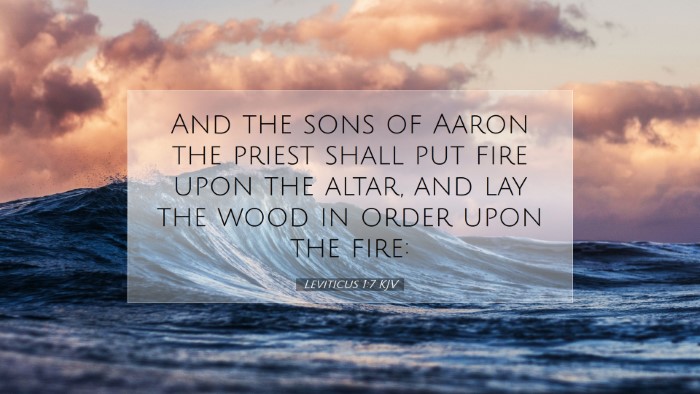Commentary on Leviticus 1:7
Bible Verse: "And the sons of Aaron the priest shall put fire upon the altar, and lay the wood in order upon the fire."
Overview of Leviticus 1:7
Leviticus 1:7 is a part of the instructions concerning the burnt offering, which signifies complete surrender to God. This verse highlights the role of the priests—specifically, the sons of Aaron—in the proper conduct of sacrificial worship, reflecting the importance of order and reverence in approaching God.
The Role of the Priests
According to Matthew Henry, the priests’ duties in this context illustrate the significance of their mediatorial role between God and the people. Their actions in preparing the altar with fire and wood represent the need for dedicated service in worship. They are responsible for ensuring that the proper rituals are followed, underscoring the seriousness of engaging in sacrificial acts.
Servants of God
Priests as servants of God played a critical role in maintaining the sanctity of worship. In the words of Albert Barnes, the emphasis on the priests' actions serves as a reminder that not every individual can approach God without mediation. The systematic approach they follow stands as an early foreshadowing of the New Testament priesthood of believers, where Christ is the ultimate mediator.
Symbolism of Fire and Wood
Fire represents God’s holiness and the purging nature of His judgment. Adam Clarke notes that laying wood in order on the altar signifies the preparation of one’s heart before God. The act of careful arrangement reflects an attitude of reverence and seriousness toward divine worship, which modern believers are also called to embody.
The Nature of Sacrifice
The meticulous process of placing wood and fire parallels the necessity of self-examination and commitment. Matthew Henry emphasizes that a true offering must first be a genuine act of the heart—the physical actions symbolize a deep, internal spiritual reality.
Theological Implications
This verse leads to significant theological discourse about the nature of sacrifice and worship in the community of Israel. Albert Barnes argues that the ritualistic approach to worship detailed in Leviticus lays the groundwork for understanding sacrificial theology found in the New Testament, particularly in the sacrificial role of Jesus Christ.
The Burnt Offering
The burnt offering, as mentioned in this chapter, symbolized total consecration to God. This religious act exemplified the principle of laying one's life down for God's service. It's a precursor to understanding the ultimate sacrifice made by Christ, establishing continuity between the Old and New Testaments.
Practical Application for Modern Believers
For contemporary believers, this verse encourages us to consider the state of our worship. Adam Clarke highlights the importance of preparation in worship services—whether communal or personal. Setting the ‘wood’ in order may translate to the preparation of our hearts and minds to meet with God. Pastors and leaders should urge the congregation to approach God with seriousness and reverence.
Living Sacrifices
The call to present ourselves as living sacrifices is echoed in Romans 12:1, creating a link between the Old Testament practices and New Testament teachings. Matthew Henry reflects on this connection, encouraging modern Christians to reflect upon their lives and motivations as they approach God in worship.
Conclusion
Leviticus 1:7, though part of the Old Covenant sacrificial system, offers timeless insights into the nature of worship, sacrifice, and the role of mediation. As discussed in the commentaries, the preparation for worship is not merely a physical act but a deep spiritual necessity. Maintaining reverence in our approach to God remains a vital aspect for pastors, theologians, and all seeking to understand the depth of God's holiness and the significance of sincere worship.
Final Thoughts
As we reflect on Leviticus 1:7 and its implications, let us strive to embody the spirit of worship that this passage teaches; where our hearts, like the wood laid on the altar, are fully consecrated unto God. Through the insights provided by commentators, we are reminded that worship, rooted in biblical practice and spiritual preparation, is vital in our relationship with the Lord.


